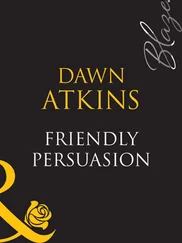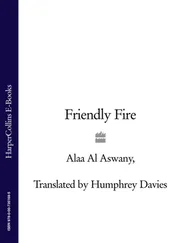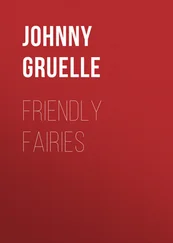She randomly opens to 2 Samuel and reads about Amnon the malingerer, who invited Tamar to his chamber so that she might prepare two ugot —"a couple of cakes," by this translation — and she finds the prose clear and engaging. The English meter of Jeremiah's poetry seems to her stately and beautiful, and she is very pleased by the little English vocabulary test she gives herself. Now she'll try her skill with the speeches made by the friends of Job, the man who cursed the day he was born, and see if they explain the failings of the world better in English than in the difficult Hebrew she recalls from her youth.
The British patient lightly taps her on the shoulder. Now dressed in a shirt and suit, he flashes her a criminal wink and triumphantly waves a bottle containing a golden liquid. What have you found here? he asks his new friend, and she shows him the book and asks boldly which he likes better, the Old Testament or the New. He is taken aback. In two months he will be eighty, and no one has ever asked him to prefer one text over the other. Not even his priest. Christianity has taught us that the Bible is one organic whole, whose elements complement each other and flow from one to another — as in Shakespeare's plays, where King Lear fleshes out and amplifies the madness of Hamlet, and the great love of Juliet for Romeo is transmuted into the devotion of Lady Macbeth to her murderer husband.
His answer surprises her, like an extraordinary answer from a mediocre student of whom she expected little. And the colonial officer, pleased by the effect of his words, hands her a glass and carefully doles out a few experimental drops, and as these are drops, she can only lick them, and their taste is strange and definitely unfamiliar to her, but clearly sweet. She hands him back the glass and says, Let us drink, sir, I am ready.
And very slowly she drains two glasses, and after hesitating requests a third, but the Englishman, who was not prepared for such enthusiasm, which might well empty his bottle, suggests deferring the third glass; the lethal influence of the local alcohol becomes apparent only gradually, he warns her, and it's best to take a break. Meanwhile he gently takes the book from her, as if to renew his old acquaintance with it.
At this moment, Yirmiyahu appears, without Sijjin Kuang, and he is amazed to see that even in such a remote and isolated place his sister-in-law has succeeded in landing an elderly British admirer, who now introduces himself and offers a friendly drink.
But Yirmiyahu, who looks worried, declines the drink. They must take to the road. Sijjin Kuang will stay the night to help the sick woman adjust to the place, and he will now be driving. Although the distance is not great, he had best remain sharp.
"I don't understand," Daniela confronts her brother-in-law in English. "What has one to get used to here? Are there painful sights that require mental preparation? Is it because of the caregivers, or the patients? They even prevent me, a mature woman, from going upstairs, as if I were a schoolgirl."
The Englishman smiles and places a friendly hand on her shoulder. Calm down, Daniela, my dear, he says, with the familiarity of a close friend. There are too many young people here, boys and girls, and it would be imprudent and unfair to expose them.
Yirmiyahu says nothing, and when he sees that his sister-i n-law, still waiting for a clear answer, remains seated in her chair, he grabs her hand, just as if she were her sister, and pulls her to her feet. But Daniela hangs back. She takes the Bible from the Englishman and presses it to her chest.
"What book is this?"
"I asked the desk clerk for something to read, and he found me, you'll never guess, a Bible, in English, with the New Testament too."
"So what? You can leave it on the table."
"No, I want to read it a bit in the remaining days. You see things in the English that you can't in Hebrew. In the meantime nobody here will miss it, and you can return it when you come to pick up your patient. On the condition that you not burn it."
Yirmi's eyes sparkle.
"Why not burn it? Why should the source of all troubles be more immune than the newspapers? This book is where all the confusion and curses begin. This especially must be destroyed."
Daniela regards him quizzically, but still warmly.
"Here it's in English, not Hebrew."
Yirmiyahu looks affectionately at his sister-in-law.
"If it's in English, we'll give it a pardon."
11.
"THIS IS ISRAEL," declares Moran, handing his father the keys. "Thunder and lightning and commotion, then out jumps the sun to calm everyone down. Too bad that nature isn't more cruel in this country, to force the people to fight against it instead of one another. This is winter?" He continues to embellish his observation, perhaps in order to distract them all from the fact that he arrived late and exposed his father and children to the raging thunderstorm. "In global terms, this is just a pleasant autumn."
He and Efrat are standing beside the car, and as Moran leans into the back to buckle his children into their car seats, the redheaded adjutant pops out of nowhere looking for his confined soldier and is surprised by the beauty of his wife. That's it, I have to confiscate your husband, says the adjutant to the woman studying him with mild contempt. Believe me, I could have sent him to the West Bank, to stand at roadblocks and chase wanted men, but I felt sorry for him and preferred to adjust his attitude here. What can I do, I'm a man who doesn't give up even on lost causes. And he suggests to Ya'ari to change his route and take the trans-Israel highway back to Tel Aviv. You won't be sorry; you can now get onto it near here, and even though it's a longer way around, and he had also objected to its construction because of the damage to the landscape, it really is quick and not crowded, and it's silly to keep boycotting it.
Ya'ari is pleased with the idea. It's been a while since he took the highway, and the new section is unfamiliar to him. But Moran is finding it hard to part from his wife and children, and at the last moment he remembers to talk about the office. Go and bravely defend your white queen, his father interrupts him, waving at the barracks. The elevators won't run away.
At the Ihron interchange they merge smoothly into the highway. A beep signals that the cameras have identified the car's owner as a registered toll-payer, and Ya'ari picks up speed on the well-designed road that traverses the heart of Israel. Efrat has hidden away in the trunk her wet army jacket muddied by the love-making and sits now at her father-in-law's side in a lightweight turquoise sweater that exquisitely matches her eyes. Diligently, she leafs through the road atlas she found in the glove compartment, not out of a deep interest in the geography of her homeland but evidently to escape the curious glances of the driver, ostensibly a family member but essentially a stranger.
Deep sleep has spirited the children away. The tour of the army camp, and especially the frightening wait for their parents, have dissipated in the warmth of the car, and the humming of its tires on the road. The girl's head is the first to droop, and her hand reaches forward in a gesture of saintly supplication. For a while longer, Nadi seems to wrestle with the shadow of the dead Syrian soldier he saw in the old tank, and then sleep tips his head backward too.
Ya'ari smiles into the rearview mirror at his sleeping grandchildren. You know, he says to his daughter-in-law, yesterday, when I spent time with the children, I thought I saw a new resemblance between Nadi and Daniela.
"Daniela?" Efrat turns around and peers at her son for a moment.
"Maybe not Daniela herself," he backtracks a bit, "but via Daniela to Shuli and to Eyal when he was little. You, of course, can't see that similarity, but I knew Eyal when he was Nadi's age. And last night — it was amazing — when you went to the party, and Nadi cried and carried on, suddenly this new resemblance surfaced."
Читать дальше












